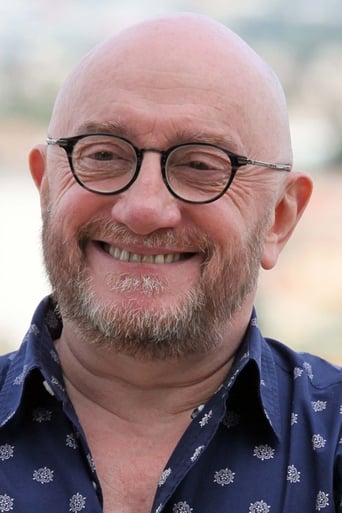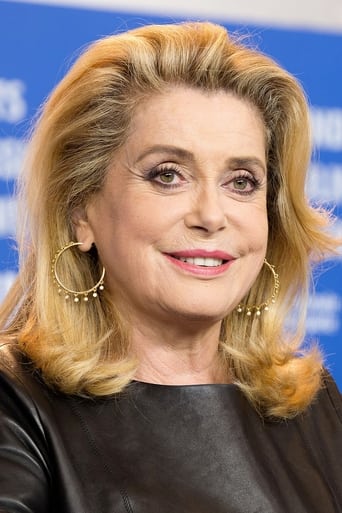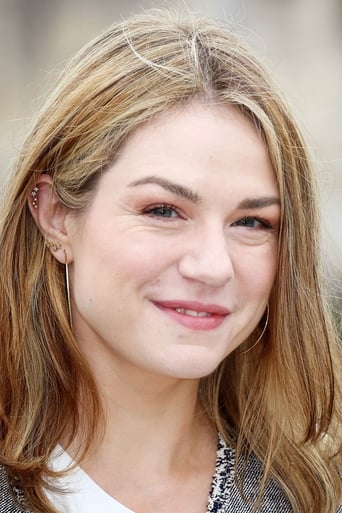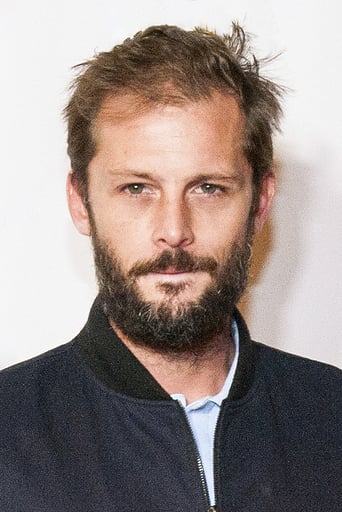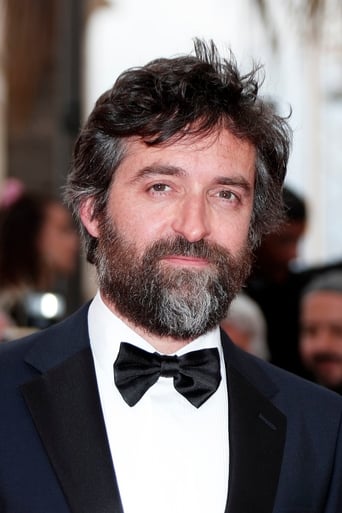Actuakers
One of my all time favorites.
TaryBiggBall
It was OK. I don't see why everyone loves it so much. It wasn't very smart or deep or well-directed.
Griff Lees
Very good movie overall, highly recommended. Most of the negative reviews don't have any merit and are all pollitically based. Give this movie a chance at least, and it might give you a different perspective.
robert-temple-1
There have been three films and two novels with the title THE GIRL ON THE TRAIN. (There is also a novel called GIRL ON A TRAIN.) The earlier novel was written by my friend Peter Whitehead, but it has never been filmed. The second novel was made into the third film. Of the three films, this was the first, though its title in French was very different, namely LA FILLE DU RER (THE GIRL OF THE R.E.R.). For those unfamiliar with the underground systems of Paris, there are two. The first is the well-known Metro, which goes short hops a few minutes apart. The second is called the R.E.R. It goes for long distances between a few main stops and extends way out to the far suburbs, being a genuine rapid transit system for commuters. So the girl of this story is not really on a train per se, she is merely on a commuter service which starts overground and goes underground when it reaches the centre of Paris. Four years later, a less well known film of the title was made in America, with its action commencing at New York's Grand Central Station. And in 2016, a British film of this title was made with Emily Blunt, which has had a considerable commercial success and is the best known of the three. This one is a brilliantly made film by that old pro, André Téchiné. He directs films as effortlessly as water flows under a bridge. But that is not to say that the film is wholly satisfying. The script is very good, but the story conception is somewhat perplexing, with insufficient background information. Hence it lacks focus, unlike the cameras.The director presumably must have wanted to make a film which remained enigmatic and suggestive, leaving us guessing about the layers beneath. That must have been his intention, and in that he succeeded. But is that really effective? The central character in the film is a very young woman, really still a girl, who is 'all mixed up', to say the least of it. No effort is made to get us to sympathise with her, nor is any made to get us to dislike her. We are meant to be puzzled observers. It is clear from the very beginning that she is wilful, foolish, pig-headed, and astonishingly stupid. She has a vague childlike charm, but she also can snarl and pout at the drop of a hat. Her father was an Army officer who was killed in battle in Afghanistan when she was 5, and she has been raised by a rather aloof mother, played by France's leading ice queen, Catherine Deneuve. Deneuve shows a surprising amount of diffused and unfocused sympathy, clearly trying hard to love her child but finding it difficult. The daughter tells her very sinister drug-dealer boyfriend that she and her mother are so close that they are 'inseparable', but that is merely one of the girl's many disembodied fantasies. She wants to be loved but is not at all discriminating about who might do so. In other words, she is a lost young soul wandering the world, dressed only in a smile. The girl is played to perfection by an extremely talented young Belgian actress, Émilie Dequenne, who at 28 looked and behaved younger. She played Valentine in the 2006 film of LE GRAND MEAULNES. The girl inexplicably goes to pieces and fabricates a sensational tale of having been assaulted by anti-Semites while travelling on the RER. Before boarding it, she had cut herself with a knife to make a gash on her face, cut off part of her hair, and drawn swastikas (as it happens, the wrong way round) on her stomach. She then goes to the police and claims this was all done to her by neo-fascist yobs. This causes a scandal in the press and even the President of the Republic issues a statement of sympathy for her. But then her story unravels when it is realized that she made it all up. She does not appear to realize why she did this, nor can anyone else figure it out. She is not even Jewish. The story is far more complicated than this, and involves penetrating studies of several characters, resulting in a tapestry portrait of some intersecting lives and groups of people constituting a haphazard milieu, all of whom are in their own ways deeply perplexing. So I suppose the director wanted us to know just how strange everyone really is. I believe him.
SnoopyStyle
Jeanne (Émilie Dequenne) is a beautiful roller blading girl. Her mother Louise (Catherine Deneuve) was an ex to prominent Jewish crusading lawyer Samuel Bleistein. Jeanne fails to get a job with him. She starts dating sketchy Franck. He's arrested and then he rejects her. She's heartbroken and fakes an attack by neo-Nazis on a train even cutting herself.She's an enigma wrapped in a mystery performed by a blank actress. I don't feel like the movie explain anything about her. Dequenne is a beautiful girl but I don't get a sense of her character. In many ways, she is the least interesting character in the movie. As for the story, it's not terribly intense or dramatic. The danger for her is so low. This is supposedly inspired by true events. It does make me wonder about the real story. This could have been a great exciting character study.
writers_reign
Let's be honest; Technine and I just don't get on. We're talking King's New Clothes here. For better or worse he has a knack of persuading real and bankable actors - Catherine Deneuve is a case in point - to work with him and somehow lend his movies an air of gravitas they actually lack. Technine, you see, is an 'issues' guy. Show him an issue and he'll shoot twelve reels around it and if, accidentally, it hangs together and is not one hundred per cent risible than that's a bonus. Andre Cayatte was an 'issues' man also, back in the day, but the difference between the two is that Cayatte actually knew how to remove the lens cap before shouting 'action', cut his teeth making mainstream films that people actually wanted to watch and, having watched, enjoyed. Here again Technine manages to scare up a fine trio of leads in the shape of Deneuve, Michel Blanc and Emilia Dequenne, and then squander their talents in a rambling, pretentious non-movie.
Thomas Aquinas
I disagree with the negative reviewer, who I think missed the point. This film intentionally avoided telling the viewer what to think about the situation or characters in this film, forcing the viewer to come to his or her own conclusions, thereby provoking a lot of thought and discussion. I saw the film with my Jewish girlfriend, and we had completely different takes on the movie and its central character. My girlfriend thought the movie itself was anti-Semitic for its negative depiction of a broken Jewish marriage-- an impression I did not (and still don't) share.The film, based on actual events in Paris in 2006, is divided into two parts. The first part is entitled "The Circumstances" and tells the story of a 19-year-old girl and the affair she unthinkingly falls into with a young French wrestling star. They end up moving in together and he gets involved with a shady drug business, of which she is unaware. He is stabbed by a drug runner and arrested. She returns home to her mother (Catherine Deneuve). Unable to get a job, distraught over her disastrous relationship, the girl impulsively cuts herself, draws swastikas on her stomach, and tells the police she was attacked by a gang of 6 boys on a commuter train outside of Paris because they mistakenly thought she was Jewish (she is not) on the basis of a business card of a Jewish lawyer she said she had in her purse.The second part of the film is titled "The Consequences." The media pick up the story-- a development she hadn't apparently foreseen-- and her mother asks her friend, the Jewish lawyer, for advice. He advises her to bring her daughter to his country home, where he, his son and daughter in law, and their 13-year-old son, who is preparing for his Bar Mitzvah, are spending the weekend. Everyone at the house seems to understand immediately that her story is false, and they want to minimize the amount of trouble she will be in if she confesses. She ultimately admits that she made up the story and writes out a confession to that effect. The French judicial system lets her off easy, and that wraps up the film.But the viewer is left to grapple with unanswered questions. Why did she make up this story? She doesn't seem to have wanted attention, and seeks to avoid the media, whose interest seems to surprise her. With all its obvious holes and weaknesses, why did the police and the media believe the story? (She is, after all, not Jewish.) The film makes the point that anti-Semitic attacks are on the rise in France. Why then does the media focus on an obviously false report of an anti-Semitic attack in which the victim is not even Jewish? Give this film a chance. The filmmakers could have tried to answer all those questions for us, as most American directors would have done, but instead set their viewers the challenge of answering them for themselves. Ultimately, that decision made for a much more interesting movie-going experience.
